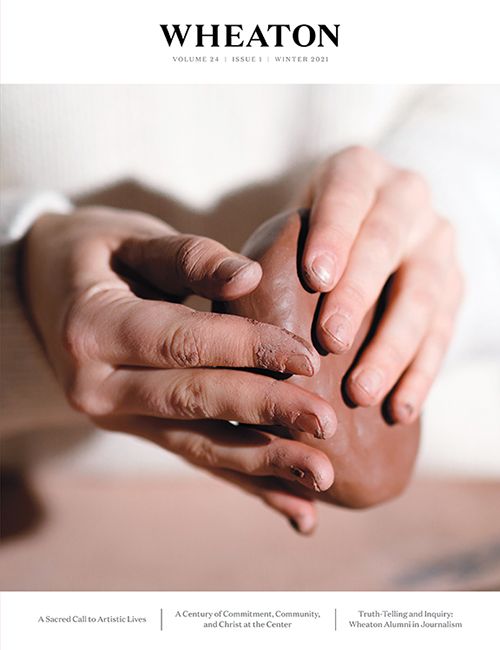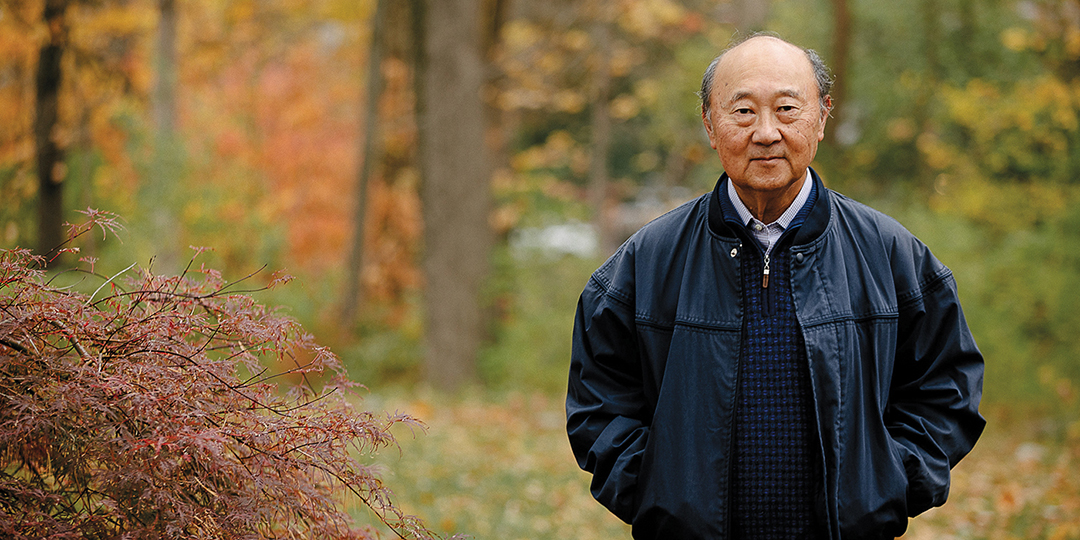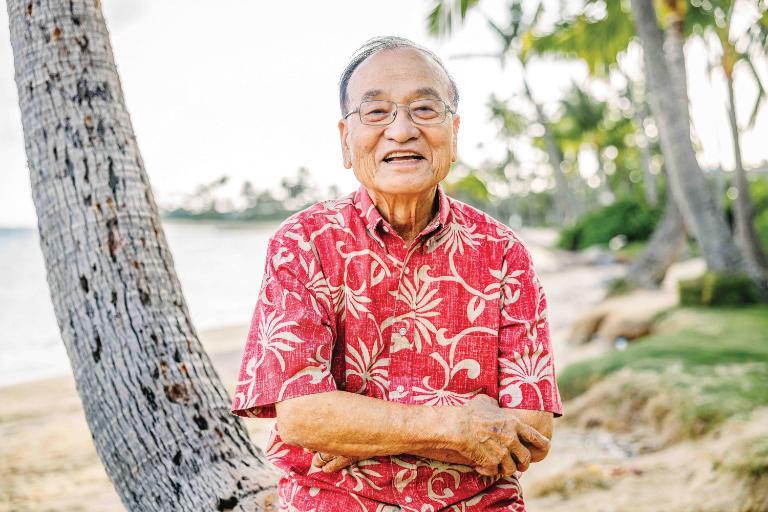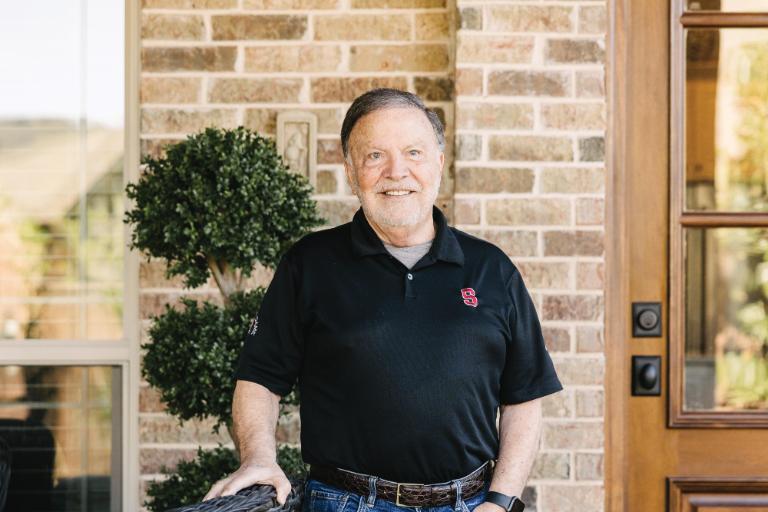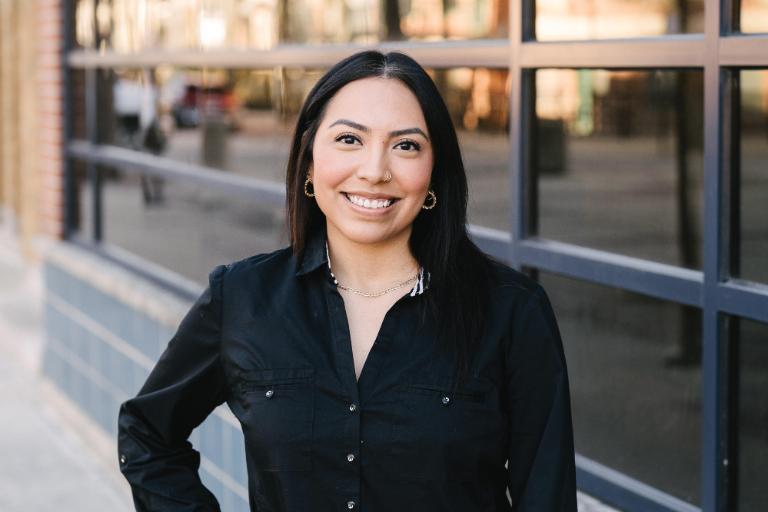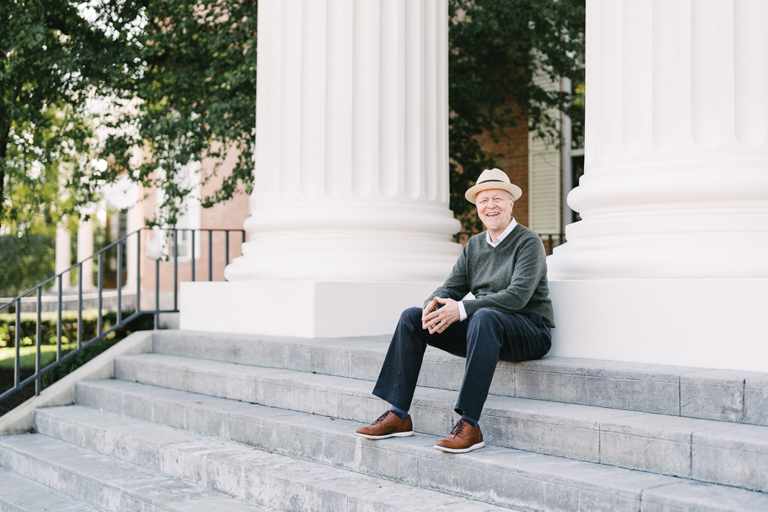Advancing Cochlear Technology
How Richard Miyamoto ’66 pioneered the field of cochlear implants with innovation and ambition
Words: Peter Biles ’20
Photos: Ann Powell Denton
“Wheaton is one of those places that, the longer you’re away from it, the more grateful you are for it.” So reflects Richard Miyamoto ’66, who, since his four years at Wheaton, has achieved monumental advancements in the field of cochlear technology research.
A chemistry and pre-med student at Wheaton, Richard went on to attend the University of Michigan Medical School on a scholarship. It was there that he first encountered “microsurgery” of the middle ear. At that time and throughout his residency in otolaryngology (the medical study of the ear, nose, and throat), there was no treatment for profound inner ear deafness.
That all changed when he was asked to be a co-investigator with his previous fellowship director, Dr. William House, on the first ever FDA-approved clinical trial of cochlear implants as a treatment for profound deafness.
Richard became a pioneer in the field. In 1979, he performed Indiana’s first cochlear implant procedure. The technology Richard worked with was revolutionary for young children and infants with hearing impairments, but for Richard, the most amazing aspect of these trials was the brain’s adaptability to the implants.
“The implant itself is pretty simple,” he said. “The brain has an astounding ability to adjust and do the rest of the work.”
Although the FDA initially approved the implants only for children ages three and up, Richard worked to make the implants available for infants, arguing that the earlier children are able to hear, the more normal their language learning and speech will be.
Richard served as a director of the American Board of Otolaryngology for over ten years and was the chair of the Department of Otolaryngology at Indiana University from 1987 to 2014. He was also the President of the American Academy of Otolaryngology–Head and Neck Surgery from 2006 to 2007. Currently, Richard is Professor Emeritus of Otolaryngology at the Indiana University School of Medicine and serves as a member of the National Academy of Medicine.
Wheaton was a great stepping stone for Richard’s life work. As a student-athlete, Richard’s baseball coach, Lee Pfund ’49, encouraged him and his teammates to thrive in their academics and life beyond baseball. His organic chemistry professor, Bernard Nelson ’31, also influenced and encouraged Richard during his time at Wheaton. Besides his teaching, Nelson would always go to the team’s baseball games, reflecting the care he had for his students’ entire lives.
“There were a lot of people at Wheaton who taught me what a good liberal arts education should look like,” Richard said. “Athletics was a big part of it. But it was only a part.”
Richard was a resident assistant at Wheaton for two years and served on Student Council his senior year. More than anything, he said, “Wheaton really taught me to think.” Encountering a diversity of opinions and perspectives on such a small campus prepared him for work in the medical field, where he encounters people from practically every kind of background. “You have to have a worldview to hold it all together, and that’s one thing Wheaton really emphasized,” he said.
